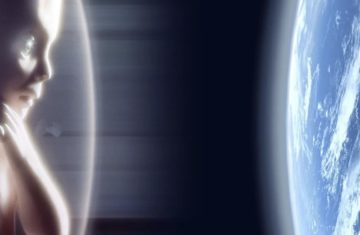Mark Bould in the Boston Review:
 Imagine a world haunted not just by the dead, but by the specter of death. Drawn ever closer by the already locked-in consequences of our actions and inaction. Its domain extended by endless escalating catastrophe.
Imagine a world haunted not just by the dead, but by the specter of death. Drawn ever closer by the already locked-in consequences of our actions and inaction. Its domain extended by endless escalating catastrophe.
Imagine a future of foreclosed possibilities.
Haunted by all the worlds that were, and all the worlds that could have been.
Then imagine—as Amitav Ghosh suggests in The Great Derangement (2016), the most widely read and highly regarded book on literature and climate change—that somewhere in the middle of all this, in a future in which “sea-level rise has swallowed the Sunderbans and made cities like Kolkata, New York, and Bangkok uninhabitable,” there are still museums and libraries and bookstores. Picture its inhabitants, urgently examining “the art and literature of our time . . . for traces and portents” of the upheavals that made their “substantially altered” world.
And “when they fail to find them,” Ghosh asks, “what should they—what can they—do other than to conclude that ours was a time when most forms of art and literature were drawn into the modes of concealment that prevented people from recognizing the realities of their plight?”
This is, of course, nonsense.
More here.
